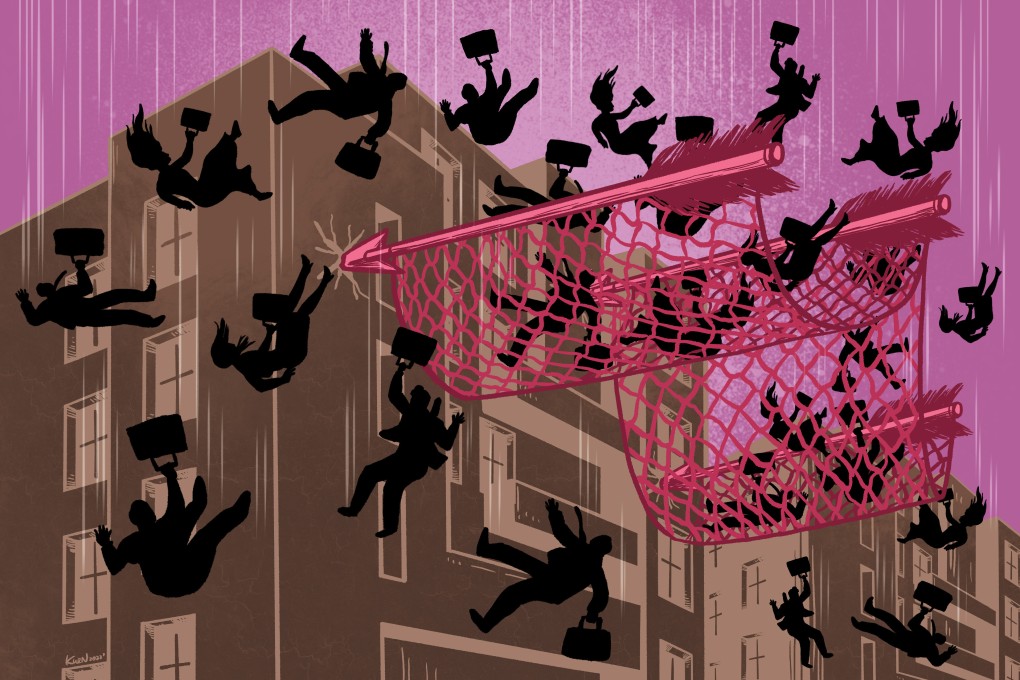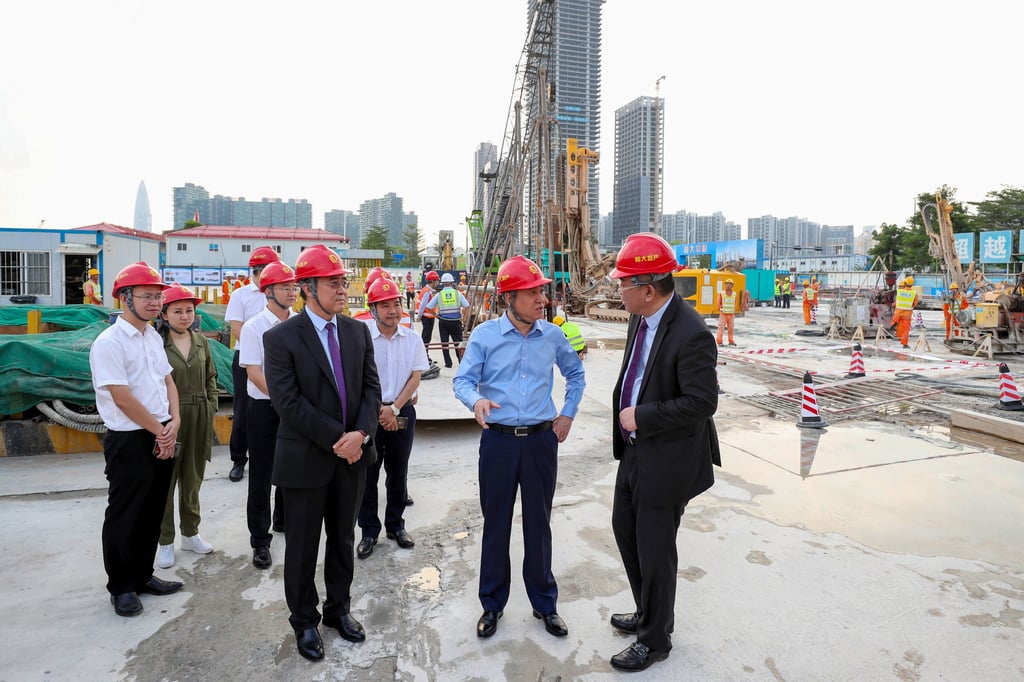China’s haphazard ‘three arrows’ could shrink the property sector. Is that more sustainable?
- Beijing’s ‘three arrows’ liquidity package is unlikely to benefit all distressed developers equally, leading to consolidation as some fail along the way
- Some 60 banks have extended 4 trillion yuan (US$573 billion) to about 100 developers since the measures were rolled out last month, according to China Index Academy

On a sunny afternoon in September 2019, Hui Ka-yan, surrounded by tower cranes, concrete trucks and the noise from drilling machines, stood arms akimbo, looking around.
It was not just any construction site in Hui’s sprawling real estate empire. It was the site of a 700-metre-tall tower that was to be the headquarters of China Evergrande Group. When complete in 2024, it would be a crowning glory for the then third-richest individual in China, who brought along with him a handpicked team of several executives from the country’s biggest developer.
It is not known what exactly Hui said in his speech to the senior management and construction workers. He commended them for doing a “good job” and told them to “stay safe” amid the din of construction work. There was laughter and applause during Hui’s brief visit on that autumn day three years ago.

Evergrande’s plight has been repeated at many of China’s top private developers, which are struggling to survive. Only a couple years ago, they vied with each other to bid for the most expensive plots, build the tallest towers and sell the most homes.